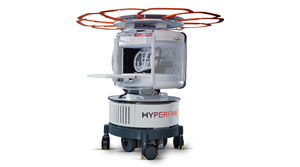January 5, 2006
Originally Published MPMN January 2006
EDITOR'S PAGE
One Size Does Not Fit All
|
With the exception of identical twins, we are all like snowflakes. None of us are exactly the same. That’s a good thing, right?
Except if you are a doctor trying to treat everyone with the same medications.
Doctors often consider a patient’s weight and gender when prescribing medicine. But as Daniel Hayes, MD, clinical director of the breast oncology program at the University of Michigan Comprehensive Cancer Center, says, “You don’t metabolize a drug based on how big you are. You metabolize a drug based on what’s going on in your liver and your kidneys that changes the drug into inactive products and excretes it. Much of the reason Mrs. Jones does it differently than Mrs. Smith is because of the genes she’s inherited from her parents.”
Hayes made his remarks in an interview with Medical Research News.
Hayes’s hypothetical Mrs. Jones and Mrs. Smith (like all people) only differ by 0.1% in their genetic makeup. But it is a crucial 0.1%. We’ve all heard stories about a man who has smoked his entire life and ends up living well into his 90s. Yet another guy comes down with lung cancer in midlife, never having smoked a single cigarette.
It may all be in the genes.
Data on human genetic variation can be used to identify genes responsible for the wide variability in people’s responses to many common drugs, says Francis S. Collins, director of the National Human Genome Institute. The presence of these genes will give clues as to how a person will metabolize drugs, or suggest susceptibility for a disease later in life. With this information, doctors will be better able to pro-vide customized treatments for their patients.
But the first step in personalized medicine is to create tests for specific genes. Diagnostic manufacturers are already on the case.
One example is the Invader UGT1A1 molecular assay from Third Wave Technologies that detects variations in a gene that affects how certain drugs are broken down and cleared by the body. Another is Roche’s AmpliChip, used to individualize dosages of antidepressants, antipsychotics, beta-blockers, and some chemotherapy drugs. And to detect variations in the genome of HIV that make the virus resistant to some antiretroviral drugs, Bayer developed the Trugene HIV-1 genotyping kit.
We are just at the beginning stages of personalized medicine. There will be huge opportunities for diagnostics manufacturers in the coming years. According to Collins, by 2010, it is likely that predictive genetic tests will be available for as many as a dozen common conditions. And by 2020, he says, gene-based designer drugs will be developed for diabetes, heart disease, Alzheimer’s disease, and schizophrenia.
But all of this cannot happen without the support and acceptance of the public. One main concern being voiced by opponents of personalized medicine is the fear of genetic discrimination in health insurance and in the workplace.
The Senate passed the Genetic Information Nondiscrimination Act of 2005 in February of last year. The bill prohibits discrimination on the basis of genetic information with respect to health insurance and employment. It is currently in the Employer-Employee subcommittee of the House of Representatives. If passed, it would be an important step in clearing the way for personalized medicine.
Susan Shepard, Editor
Copyright ©2006 Medical Product Manufacturing News
You May Also Like



